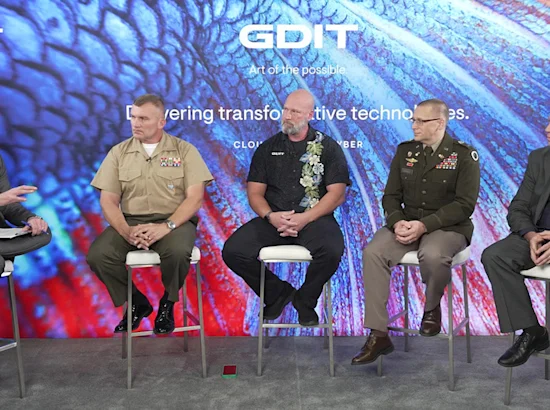Around the world, American troops and mission partners often operate in environments where their freedom of movement and stockpile of supply are limited – whether due to the remote nature of the location, conflict in the region, weather events, or local laws and restrictions. Yet, the mission must advance. Contested logistics refers to the sustainment of our forces in environments where adversarial or naturally occurring conditions can disrupt continued operations.
Across air, land, sea, space, cyber, or information domains, a primary factor in the United States’ ability to maintain military superiority is our ability to project and sustain military forces anywhere around the world, at the time and place of our choosing – this is why contested logistics capabilities are so important. These logistic competencies require access to natural resources, a strong industrial base, secure supply chains, and multiple modes of transportation to move people and supplies where and when needed.
Data and Technology: New Challenges in Supply
In today’s data-driven world, there are numerous vulnerabilities to supply chains and transportation networks beyond those traditionally considered. Space-based tracking, GPS, and automated supply technologies have sped up delivery of material and supplies around the world. Simultaneously, these advances have also exposed a myriad of vulnerabilities to our adversaries.
Today, allies and partners must work to sustain operations while also proactively identifying vulnerabilities and taking steps to reduce or eliminate them. The vulnerabilities in the virtual world are almost too numerous to count and expanding as rapidly as technology expands.
It is relatively easy to look at a map and identify physical obstacles, chokepoints in roads or sea lanes, or to forecast severe weather patterns. But to dig deeply into supply chains and understand the systems used to automate and track data, or to figure out whether or not a certain supplier or transportation depot is linked to an adversarial regime takes additional levels of expertise and understanding, as well as platforms dedicated strictly to identifying those linkages.
Meeting the Moment with Innovative Approaches
AI-driven predictive analytics can identify geopolitical events, weather phenomena, or market trends that may impact supply chains or transportation networks. AI can predict effects from such events far in advance of the actual event and recommend strategies to mitigate potential shortages. From a cybersecurity perspective, AI combined with zero trust can dramatically improve both an organization’s security posture and its resilience.
GDIT works with customers to develop strategies that integrate predictive analytics as well as AI-driven automation, zero trust architectures and other innovative cyber approaches to proactively defend networks and infrastructure and to drive resilience into supply chains. We have strategically invested in Digital Accelerators that enable us to bring tailorable solutions to customers that easily integrate with their environments. These accelerators also enable customers to rapidly benefit from emerging technologies that have been proven, often collaboratively, in our labs and developed specifically for federal and defense operating environments.
Looking Ahead: More Data and Vigilance in Contested Environments
Of course, no matter the mission, the more we automate and rely on data, the more we can expect our adversaries to find and exploit vulnerabilities. This is especially true when it comes to contested logistics operations. Our adversaries know they cannot stop us through direct military force. However, they can exploit our supply chains and transportation networks through commercial, economic, or cyber means. Ports of entry can be denied, or key components to major weapons systems can be made unavailable at any point in the supply chain, from the mining of natural resources to assembly at a commercial plant.
Sustaining logistics in a contested environment requires constant vigilance and monitoring of global conditions, as well as innovation in technologies and methods to stay ahead of our adversaries. This is why GDIT’s investment and commitment to this space and to these missions remains unwavering.






